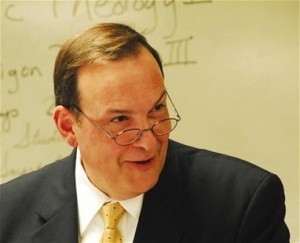Justin Taylor's Blog, page 142
August 21, 2013
What Is the Relationship between the Writings of the Old Testament and Other Ancient Near Eastern Literature?
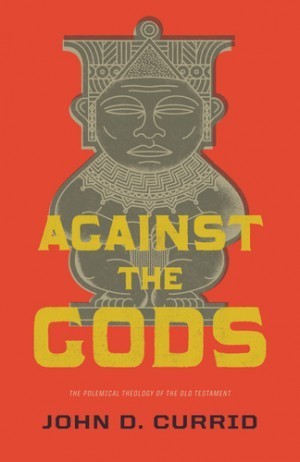 John Currid’s new book, Against the Gods: The Polemical Theology of the Old Testament.
John Currid’s new book, Against the Gods: The Polemical Theology of the Old Testament.
This book is about the relationship between the writings of the Old Testament and other ancient Near Eastern literature.
It is a difficult, complicated, and much-debated topic in the field of biblical studies today. To be frank, there is little consensus regarding exactly how the two relate to each other.
There are extremes, to be sure: on the one hand, some believe that ancient Near Eastern studies have little to contribute to our understanding of the Old Testament and, in fact, constitute a danger to Scripture. On the other hand, there are some who would say that the Old Testament is not unique but it is merely another expression of ancient Near Eastern literature that is grounded in myth, legend, and folklore. Surely the truth lies somewhere between the two extremes.
It is certainly undeniable that the historical, geographical, and cultural context of the Bible is the ancient Near East, and study of the era has much to add to our understanding of the Old Testament.
But it is also true that the Old Testament worldview is unique in the ancient Near East, and this is immediately confirmed by its all-pervasive monotheism. It simply does not swallow ancient Near Eastern thought hook, line, and sinker. And so, the question for modern minds in this regard is, what precisely is the relationship of the Old Testament to ancient Near Eastern literature?
A couple of blurbs:
“This is a splendid introduction to the use that the Old Testament makes of the religious ideas of Israel’s ancient neighbors. Currid compares the biblical accounts of creation and the flood with the versions from neighboring cultures and shows how the Bible puts down and rejects the theological ideas of Babylon, Egypt, the Hittites, and the Canaanites. This process, which Currid terms ‘polemical theology,’ serves to demonstrate the unique sovereignty of the God of Israel. This is a very positive approach to the issues raised by the extrabiblical parallels and is greatly preferable to seeing the parallels as showing the Bible as simply borrowed pagan ideas and myths.”
—Gordon Wenham, Adjunct Professor, Old Testament, Trinity College, Bristol, England
“A rising influential voice in Old Testament studies is asserting that the biblical worldview, while monotheistic, often parallels and at times pirates with minimal discrimination the pre-enlightened religious ideas and rituals of ancient Israel’s neighbors. In contrast, John Currid persuasively demonstrates in Against the Gods that the Bible’s tendency is not to appropriate but to dispute and repudiate pagan myths, ideas, identities, and customs. This important introduction to Old Testament polemical theology provides a balanced corrective to many current comparative studies.”
—Jason DeRouchie, Associate Professor of Old Testament, Bethlehem College and Seminary
August 20, 2013
Beautiful Eulogy: Vital Lens
The first single from Beautiful Eulogy‘s sophomore release, “Instruments of Mercy,” coming free this fall from HumbleBeast.com:
Oliver Crisp on the Preaching of Jonathan Edwards
Oliver Crisp—author of books such as Jonathan Edwards and the Metaphysics of Sin and Jonathan Edwards on God and Creation—gives a lecture at the Henry Center & Jonathan Edwards Center at Trinity Evangelical Divinity School on the preaching of Jonathan Edwards:
An Interview with Ligon Duncan
A conversation with the newly elected chancellor and CEO of Reformed Theological Seminary:
How long, and in what capacity, have you been associated with RTS?
I have been associated with RTS for 24 years. In May of 1989, Dr. Luder G. Whitlock, then President of RTS, asked me to interview for a faculty position in Systematic Theology. I was then in Edinburgh, Scotland, pursuing my PhD at the University under the mentorship of a widely respected scholar, David F. Wright. So, I came to RTS Jackson in the fall of that year (my first ever visit to Mississippi) to be interviewed and examined by the faculty. I was elected and called to be Assistant Professor of Systematic Theology. I returned to RTS Jackson in the summer of 1990 to begin teaching. It was my privilege to serve under Dr. Douglas F. Kelly, who was my Department Head. When Dr. Kelly subsequently moved to RTS Charlotte, I was promoted to Department Chairman, Associate Professor, and then appointed to the John R. Richardson Chair of Theology (my predecessors in this chair were John R. DeWitt, R. C. Sproul, and Douglas F. Kelly, and my successor Harold O. J. Brown—needless to say, they adorned this professorship). In the early 1990s it was my joy to help get the RTS Charlotte campus started, traveling there regularly to teach the whole cycle of Systematic Theology and other courses.
In 1996, I was called to become the Senior Minister of the historic First Presbyterian Church, Jackson, MS (founded 1837), but the call officially specified that I would continue to teach for RTS, which I happily did for 15 years under the title of Adjunct. In 2011 I was given the rank of Distinguished Visiting Professor, and in 2012 I returned to the resident faculty of RTS Jackson as a full Professor and was promoted to the John E. Richards Chair of Systematic and Historical Theology, which I still hold along with my duties as Chancellor.
Over the course of the years, I have had the privilege to teach in each of the divisions of study on the faculty of RTS (Theology/History, Biblical Studies, Practical) and in all departments (Systematics, Church History, New Testament, Christian Education, and Missions) except for OT and Counseling (but I married an RTS MFT graduate!). I have been on the faculty and present for half of the Commencement Exercises in the history of RTS Jackson, and I have taught at RTS Charlotte, Orlando, Memphis, and Global as well. I love biblical theology, and pioneered (at the behest of RTS Jackson Dean Richard Watson) the inclusion of Covenant Theology in the RTS MDiv curriculum—a course I have taught for RTS over thirty times.
This summer, I was elected and called to be Chancellor of RTS, which is the chief executive officer of the whole institution. For now, I will continue to reside and teach in Jackson, and regularly travel to and teach for our other campuses.
After many years in pastoral ministry, at a church you dearly love (and dearly loves you!), how difficult of a decision was this for you?
It was incredibly difficult. It was overwhelming even to contemplate leaving a place and work that I so dearly love (and people who love me far, far beyond my deserving), and to take up so weighty a calling. I have served First Presbyterian Church for over 17 years, almost a tenth of her 176 years of history. My children were born, baptized, catechized, professed faith, and first communed here. They love this church. I entered into a season of serious reflection, sought wise counsel, and asked the Lord to show me the way forward. This has been the most difficult vocational decision that I have ever had to make.
What finally caused your mind to change on this?
In the end, two things were determinative.
First among them was the almost universal counsel of friends and colleagues in ministry. It will not surprise you to know that friends like Al Mohler, Mark Dever, C.J. Mahaney, Derek Thomas, Kevin DeYoung, and others urged me to accept the call to RTS. Al, who has been enormously helpful to me in this process, was particularly insistent. He said: “You must do this.” One crucial correspondence I received was from my dear friend Sinclair Ferguson. I have known Sinclair since I was a teenager, and he has never given me vocational advice, but he wrote: “I hope it will be the Lord’s will for you to serve RTS in a new capacity. If not you, who? If not now, when? You are designed for such ministry to help our seminaries. . . . I know it would be sore to leave the flock . . . but the Lord is able to help.”
The second factor in my decision was the importance of RTS in particular, and theological education in general, for the work of the churches and the witness of the Gospel. RTS plays a significant role in theological education for the reformed and evangelical world in North America and internationally. RTS is now larger than Princeton (which would have boggled the minds of our founders back in the fall of 1966 when our doors first opened). Indeed, RTS is the largest conservative, Reformed seminary in North America. As such, RTS plays a critical role in the propagation of a vibrant, vital, Gospel-proclaiming Reformed Christianity here and around the world. A number of years ago, at the Calvin Colloquium that used to be held at Davidson College, I had a fascinating conversation with the well-known theological educator Dr. John H. Leith, who was at one time the Pemberton Professor of Theology at Union Theological Seminary. When he found out that I was a young assistant professor at RTS, I half-feared his reaction, but instead he looked me in the eye and graciously but poignantly said: “The future and hope of the Reformed Faith here in the United States does not lie with my church or her institutions, but with yours and schools like RTS.” The last two decades have proved him indisputably correct.
RTS has a unique model. Is it one seminary with multiple locations, or multiple seminaries with a common vision and ethos? How would you describe who RTS is?
RTS is one seminary with multiple campuses. One faculty dispersed in various locations, all of whom share robust theological commitments and educational aspirations, and a common vision and ethos. From the beginning, it has been the stated purpose of RTS to serve the church in all branches of evangelical Christianity, by preparing its leaders— with a priority on pastors, and including missionaries, educators, counselors, and others—through a program of theological education on the graduate level, based upon the authority of the inerrant Word of God, and from the standpoint of the historic Reformed faith as articulated in the Westminster Confession of Faith and Catechisms.
RTS is characterized by a commitment to biblical fidelity, confessional integrity, and academic excellence. We are evangelical, Reformed, confessional, complementarian, and happy. We are Gospel-animated. We want to see the good news of God’s grace in Jesus Christ proclaimed and lived out. We are unapologetically committed to the plenary verbal inspiration, and the inerrancy and final authority of the Bible. A high view of Scripture has been the hallmark of RTS from the beginning. We stand in the mainstream of historic orthodox Christianity, in the Reformed and Presbyterian branch of that family.
We are confessional, and our faculty joyfully subscribes to Westminster Confession of Faith and Catechisms, while teaching students from more than fifty denominations and various evangelical traditions in a spirit of humility, love, respect, and service. We genuinely want to help them and their churches. We are firm in what we believe. And from a posture of humble orthodoxy our attitude is: “how may we serve you?” We love the spirit of Charles Simeon and John Newton.
We also believe that those who serve the churches must be equipped both intellectually and spiritually, hence our unofficial motto: “A mind for truth. A heart for God.” This emphasis on the cultivation of the Christian life and experience can be traced back in the Reformed tradition through Princeton (think B. B. Warfield, “The Religious Life of Theological Students“), to Scottish Presbyterianism and English Puritanism, and right back to Calvin’s Institutes, which he called a “sum of piety.” Of course, the idea of a truth unto godliness comes from a much more ancient source that the magisterial Reformation: Scripture.
What are your hopes and dreams for the future of RTS?
First, I want RTS to remain faithful. We live and minister in a day and age unfriendly to the commitments of confessional Christianity in the setting of higher education. RTS has stood firm in the storms of late modernity, and Gospel-believing churches and institutions here and around the world need for us to continuing standing firm. I want the students who attend to know that they will hear the truth taught right out of God’s holy, inspired, and inerrant word. I want churches and our fellow evangelical universities and seminaries to know that they can count on us to hold fast our confession and stand on the word of God.
Second, I want RTS to remain missionary in its orientation. Another unofficial motto of ours is “Standing firm, but not standing still.” One of the things we mean by that is that we aren’t aiming to just hang on. We want to deploy our resources for the Savior. We want to be outward and forward looking. To “attempt great things for God and expect great things from God.” This is exactly what Al Mohler was emphasizing at Southern Seminary in his two famous convocation addresses. The first was titled: “Don’t Just Do Something, Stand There!” It emphasized standing on the truth of the Bible. The second was called: “Don’t Just Stand There, Do Something!” It emphasized deploying the truth in ministry and mission. That is what we want to do at RTS. When the PCA was formed one of our unofficial slogans was “True to the Bible, the Reformed Faith and Obedient to the Great Commission.” The PCA founders signified thereby that they stood not only for biblical faithfulness and doctrinal adherence, but for missionary boldness. Those aspirations are part of the RTS ethos.
It is clear now that all of us who share evangelical commitments are going to be sailing into stiff cultural headwinds. As Calvinists, that doesn’t surprise us. After all, we believe in depravity. People rejecting the truth isn’t a shocker. But we also believe in God’s sovereignty and so, instead of responding to increasing cultural resistance by filling up our moats with alligators and pulling up the draw bridge, we go forth with the blessing of the Father, in the name of Christ and in the strength of the Holy Spirit, and we expect the Gospel to work, because it is the power of God unto salvation.
I could share pages and pages of hopes and dreams for RTS, but one good place you could go to read my heart is “The Plan of a Theological Seminary” (1811) which was the founding document for old Princeton. You’ll find a copy in Mark Noll’s The Princeton Theology. If I may paraphrase one of its beautifully worded and biblically grounded emphases, at RTS, we want “to form men for the Gospel ministry who will truly believe and cordially love the biblical truth of Reformed Theology, and who therefore will endeavor to preach, propagate, and defend it, in its genuineness, simplicity and fullness” and “thus extend the influence of true evangelical piety and Gospel order.”
August 19, 2013
A Man Who Has Saved 1,000 Babies
Leclerc Brothers Moving Pictures recently visited the Orlando Women’s Center—one of the most active abortion clinics in the country—to profile the tireless pro-life work of John Barros:
For more info, see WhoWillStand.net.
HT: @rcsprouljr
Ligon Duncan Appointed Chancellor and CEO of Reformed Theological Seminary
A press release from Reformed Theological Seminary: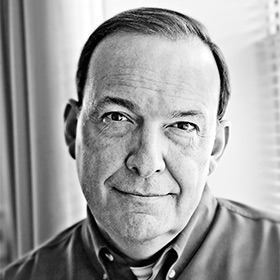
The RTS Board of Trustees has elected Dr. J. Ligon Duncan, III, as Chancellor and CEO of Reformed Theological Seminary. Dr. Duncan is currently the John E. Richards professor of systematic and historical theology at RTS in Jackson, MS and the senior minister of historic First Presbyterian Church (1837), where he has served for the past seventeen years. He is the president of the Council on Biblical Manhood and Womanhood, and served as President of the Alliance of Confessing Evangelicals from 2004-2012.
Dr. Duncan will continue to teach systematic and historical theology for RTS, and will serve as senior minister at First Presbyterian Church until the end of this year. His appointment as Chancellor and CEO of RTS follows his good friend Dr. Michael Milton, who retired as Chancellor in May 2013.
“We are thankful the Lord has answered our prayers so quickly,” said RTS Chairman of the Board Richard Ridgway. “Dr. Ligon Duncan is uniquely gifted for this important leadership position at RTS. He is a well-known theologian, pastor, preacher and churchman not only in the PCA but across the spectrum of evangelical and Reformed churches, here in North America and around the world. As an RTS professor for 23 years, he knows our institution and our faculties know him as a man who is both a scholar and a pastor. He is an effective communicator with great leadership ability.”
Dr. Duncan is a familiar face to us having taught for RTS since 1990. He has lectured for RTS in Jackson, Charlotte, Orlando, Memphis, and for our Global program, as well as in Vienna and Hong Kong. He has delivered lectures and papers at various universities, seminaries and national meetings, and has preached or addressed major conferences as a member of the faculty representing RTS.
He earned the Ph.D. in Theology from the University of Edinburgh, New College (Scotland) in the field of Patristics, or what is now often called Early Christian Studies. His doktorvater was the renowned Reformation and Patristic scholar, David F. Wright. Duncan did both his M.Div. (cum laude), and his M.A. (in Historical Theology) also cum laude, at Covenant Theological Seminary, where he was mentored by the respected church historian, David B. Calhoun. Duncan received his B.A. (History) from Furman University. He has authored, co-authored, edited or contributed to more than 35 books.
Dr. Duncan’s pastoral experience began in his twenties, serving on the staff at The Covenant Presbyterian Church of St. Louis (under the late Rodney Stortz), He was licensed to preach by his presbytery in 1985 and supplied pulpits in churches in the U.K. throughout this time there in the late-1980′s. In 1990 he was ordained in the Presbyterian Church in America (PCA) and joined the faculty of RTS in Jackson, where he was subsequently appointed the John R. Richardson professor of theology. During this time, he also served as an assistant minister at Trinity Presbyterian Church in Jackson (under his boyhood pastor, Gordon K. Reed) and then as interim pastor at First Presbyterian Church in Yazoo City, Miss. He left his full-time position at RTS to become senior minister of the First Presbyterian Church in Jackson in 1996 (only the twelfth in that congregation’s 177-year history), but continued to teach at RTS as adjunct.
In 2004, Duncan became the youngest minister ever to serve as moderator of the general assembly of the Presbyterian Church in America. He helped co-found Together for the Gospel in 2006, which has become a major catalyst for the young reformed resurgence. He is founder and chairman of Reformed Academic Press and serves on numerous boards/councils including the Highland Theological College, The Gospel Coalition, and the Reformed African American Network. He is the chairman of the RUF Midsouth Joint Committee which gives oversight to university campus ministry throughout the region.
His wife Anne is an RTS alumna with a master’s degree in marriage and family therapy. She is currently on the faculty of Jackson Preparatory School. Ligon and Anne are the delighted parents of two wonderful teenagers and they plan to continue to reside in Jackson.
Reformed Theological Seminary was founded in 1966 and is one of the largest seminaries in the country with campuses in Atlanta, Charlotte, Houston, Jackson, Memphis, Orlando and Washington D.C., in addition to RTS Global Education (US & International) that offers online degrees and classes.
You can read some congratulatory notes here.
Offering H.E.L.P. in Times of Suffering
Doug Wolter, a pastor in Humboldt, Iowa, who is leading his church through a tragedy in their town after two high school graduates were killed in a car accident. Sometimes aacronyms can be helpful as prompts for us to remember basic truths that can be easy to forget. Here is what Doug offers:
H – Hope, not answers. When people are in the midst of suffering, they need hope more than answers. Hope is not found in solving the problem, but running to a person: Jesus. We may not know why everything happens, but we can hope in the person who understands suffering more than anyone and sympathizes with us in it.
E – Enter into their pain; empathize with them. Did you know that grieving with someone can be the single most helpful expression of love and care? Weep with them. Just be there for them and be with them.
L – Listen to them and love them in tangible ways. Seek to understand their situation. James 1:19 says, “Be quick to listen and slow to speak.” If you must speak, tell them, “I am standing with you. I am grieving with you.” And love them in tangible ways. Make a meal. Offer a small gift. Spend time with them.
P – Pray for them and patiently walk with them through the long journey of suffering. In the deepest of suffering, some may find it hard to even pray. We can intercede for them and carry this burden. And oftentimes, after the initial help has arrived, we forget the one who is suffering over time. But this is when the church is even more needed. To patiently walk with them and be with them through the long road of suffering.
August 17, 2013
A Rare Interview with Martyn Lloyd-Jones
The following is a rare video interview with Dr. Martyn Lloyd-Jones (1899-1981).
It was filmed in 1970, when Lloyd-Jones was 70 years old, two years after his retirement from Westminster Chapel in 1968 and eleven years before his death.
The interviewer is Aneirin Talfan Davies (1909-1980), a noted Welsh broadcaster who was also a poet and literary critic.
Davies was once a member of the Calvinistic Methodist Church but later joined the Anglican Church. In fact, seven years earlier, in April and June of 1963, Lloyd-Jones and Davies had a theological debate with each other on ecumenism, written in Welsh. (See the translation of some of their exchange in Iain Murray’s D. Martyn Lloyd-Jones: Letters 1919-1981, 143-163.)
J. I. Packer: Theological Biographer
J. I. Packer would have been a fantastic biographer.
He is widely recognized as a masterful summarizer of theology. “Packer by name, packer by trade” he likes to say. But not as well-known is his gift for summing up a man. In a compact way he is able to describe a man’s physical characteristics and give a sense of what it was like to interact with and learn from him.
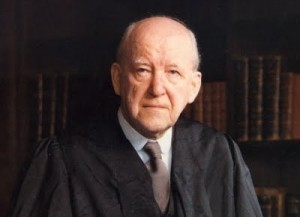 Take, for example, his write-up on D. Martyn Lloyd-Jones, a man he deeply admired even after they had a relational parting of the ways.
Take, for example, his write-up on D. Martyn Lloyd-Jones, a man he deeply admired even after they had a relational parting of the ways.
What a fascinating human being he was! Slightly built, with a great domed cranium, head thrust forward, a fighter’s chin and a grim line to his mouth, he radiated resolution, determination, and an unwillingness to wait for ever. A very strong man, you would say, and you would be right. You can sense this from any photograph of him, for he never smiled into the camera.
There was a touch of the old-fashioned about him: he wore linen collars, three-piece suits, and boots in public, spoke on occasion of crossing-sweepers and washerwomen, and led worship as worship was led a hundred years before his time.
In the pulpit he was a lion, fierce on matters of principle, austere in his gravity, able in his prime to growl and to roar as his argument required.
Informally, however, he was a delightfully relaxed person, superb company, twinkling and witty to the last degree. His wit was as astringent as it was quick and could leave you feeling you had been licked by a cow. . . .
In 1952 he complained to me of the presence at the Puritan conference of two young ladies from his congregation. ‘They’re only here for the men!’ said he. ‘Well, Doctor,’ I replied, ‘as a matter of fact I’m going to marry one of them.’ (I had proposed and been accepted the night before.) I thought that would throw him but it didn’t at all. Quick as a flash came the answer, ‘Well, you see I was right about one of them; now what about the other?’ That’s repartee for you! He did not suffer fools gladly and had a hundred ways of deflating pomposity. Honest, diffident people, however, found in him a warmth and friendliness that amazed them.
For he was a saint, a holy man of God: a naturally proud person whom God made humble; a naturally quick-tempered person to whom God taught patience; a naturally contentious person to whom God gave restraint and wisdom; a natural egoist, conscious of his own great ability, whom God set free from self-seeking to serve the servants of God.
Packer goes on to write:
Nearly forty years on, it still seems to me that all I have ever known about preaching was given me in the winter of 1948-49, when I worshipped at Westminster chapel with some regularity. Through the thunder and the lightning, I felt and saw as never before the glory of Christ and of his gospel as modern man’s only lifeline and learned by experience why historic Protestantism looks on preaching as the supreme means of grace and of communion with God. Preaching, thus viewed and valued, was the centre of the Doctor’s life: into it he poured himself unstintingly; for it he pleaded untiringly. Rightly, he believed that preachers are born rather than made, and that preaching is caught more than it is taught, and that the best way to vindicate preaching is to preach. And preach he did, almost greedily, till the very end of his life. . . .
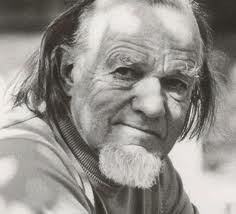 Or here is Packer’s description of Francis Schaeffer in his tribute, “No Little Person”:
Or here is Packer’s description of Francis Schaeffer in his tribute, “No Little Person”:
He was physically small, with a bulging forehead, furrowed brow, and goatee beard. Alpine knee-breeches housed his American legs, his head sank into his shoulders, and his face bore a look of bright abstraction. Nothing special there, you would think; a serious, resolute man, no doubt, maybe a bit eccentric, but hardly unique on that account. When he spoke, his English though clear was not elegant, and his voice had no special charm; British ears found it harsh, and if stirred he would screech from the podium in a way that was hard to enjoy. Nevertheless, what he said was arresting, however he might look or sound while saying it. It had firmness, arguing vision; gentleness, arguing strength; simple clarity, arguing mental mastery; and compassion, arguing an honest and good heart. There was no guile in it, no party narrowness, no manipulation, only the passionate persuasiveness of the prophet who hurries in to share with others what he himself sees.
You can read more of his biographical sketches—including Luther, Calvin, Baxter, Whitefield—in the fourth volume of his collected works on honouring the people of God.
August 16, 2013
An Interview with Bryan Chapell on the Gospel Transformation Bible
Dane Ortlund, the managing editor of the ESV Gospel Transformation Bible, interviews Bryan Chapell, the general editor.
You can find out more about the contributors and the editions and see samples here.
Justin Taylor's Blog
- Justin Taylor's profile
- 44 followers


